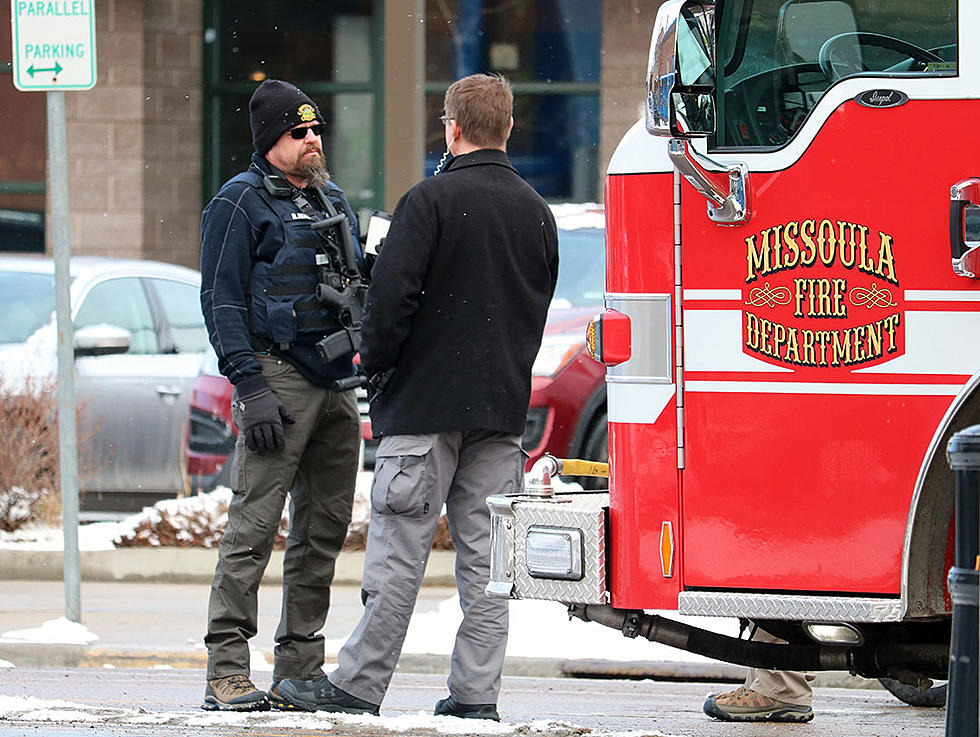
Citing taxpayer concern, city pulls fire levy
Martin Kidston
(Missoula Current) A proposed levy intended to improve fire and emergency response across Missoula by establishing a new fire company and station in the Mullan area was pulled from the November ballot on Monday night.
The vote passed 11-1, with City Council member Daniel Carlino voting alone in opposition.
City officials said they were left with no choice but to pull the measure after citizen outrage over the state's estimated tax bills and the Republican Legislature's failure to heed the warnings from the Montana Department of Revenue over inflated property values in the 2023 session.
“The state Legislature has created an absolutely untenable situation from a property tax standpoint, and has created a massive tax shift to residents,” said Mayor Jordan Hess.
Hess added that under state law, tax bills won't be mailed out this year until after Missoula voters had voted on the fire measure, not knowing what their tax bills would be.
Hess said that would be unfair to local property owners and their personal budgets – something the state was indifferent to, officials said.
“What I'm personally requesting is that you keep this in mind as a high priority,” Hess said of the fire needs. “This remains a need and my highest priority, and something the next City Council and the next mayor takes up. This is not the time and it's not fair to the voters, and not a good climate to bring up a major funding measure.”
The costs and questions
The fire levy would have sought roughly 34 mills to levy around $7 million a year. The two candidates for mayor, including Mike Nugent and Andrea Davis, offered different concerns on Monday.
Both noted the needs of the fire department and that of residents living in areas where response times lag. While Davis said the decision to delay the levy was responsible due to tax concerns, she brought up the needs of the Mobile Support Team – a measure voters opposed in last year's failed Crisis Services Levy.
“The ongoing support for the Mobile Support Team is something as a community we're going to have to have a conversation about how if we're willing to fund that,” Davis said. “I understand your (City Council) decision and recognize the difficulty of that."
Nugent, also a candidate for mayor, backed the fire department union in opting to delay the levy out of taxpayer concern.
“I will stand with their request,” said Nugent. “The need still exists and it's not going away. The tools we have to address the things we're required to fund are very small.”
Needs versus wants
Other members of council nodded to taxpayer concerns on Monday night, including Gwen Jones. While a new fire station and fire company is needed, Jones said options are limited in ways to fund it, and taxes are at breaking point.
“The tax burden on our constituents is untenable,” said Jones. “We're between a rock and a hard place. The need is great. We have a great fire department. We've got to increase their capacity.”
Council member Stacie Anderson agreed, noting that the fire department hasn't increased staffing since 2008, though Missoula has grown exponentially ever since.
“We recognize the need that's continually being put on them,” Anderson said of the department. “This whole situation felt like it was set up for failure at the beginning when the Department of Revenue's tax notices went out with an incredibly inaccurate number of what people's proposed tax numbers may have been.”
Property values around the state increased on average 40% after the Montana Department of Revenue conducted its two-year appraisal. It warned the Legislature of the potential impacts to come, though the GOP majority declined to reduce the residential tax rate while giving cuts to other taxing jurisdictions.
Instead, Republicans offered a $650 tax rebate to property holders. But the state at the same time sent out notices warning of egregious tax increases, even before local governments had set their mills. That placed most property owners on edge, essentially forcing local governments into a corner.
A number of counties have since asked Republican Attorney General Austin Knudsen for an opinion on state mills, which could add even more weight to local taxes if not reduced by Gov. Greg Gianforte.
Council member Carlino said it makes him concerned. But he wanted local voters to make the ultimate decision on the fire tax and do so this year. While he slipped an $18,000 experimental weed program into the FY24 budget, he suggested on Monday that the city could cut police to pay for fire.
“The police department has doubled in the past 13 years while our fire department has added zero staff at that time. Allowing voters to make the decision is a good path,” said Carlino.
Fire department officials during the budgeting process said their response times had slipped below national standards, largely due to growth and the city's annexation of new property. The City Council placed the fire measure on the ballot in early August, calling for roughly 34 mills to generate around $7 million annually.
“You can't add one firefighter at a time. You have to add an entire engine company,” Mayor Jordan Hess said one month ago. “We haven't done that in over a decade and it's high time we do so. This is something we need to do as a growing community.”
But Hess on Monday night, along with other city officials, said concerns over tax increases trumped the need for a new fire company. The fire department has requested a new station in the Mullan area for the past four years – a request the city has failed to fund.
“It's a really difficult time for taxpayers,” said council member Amber Sherrill. “It's hard to vote when you don't know what your tax burden is.”
